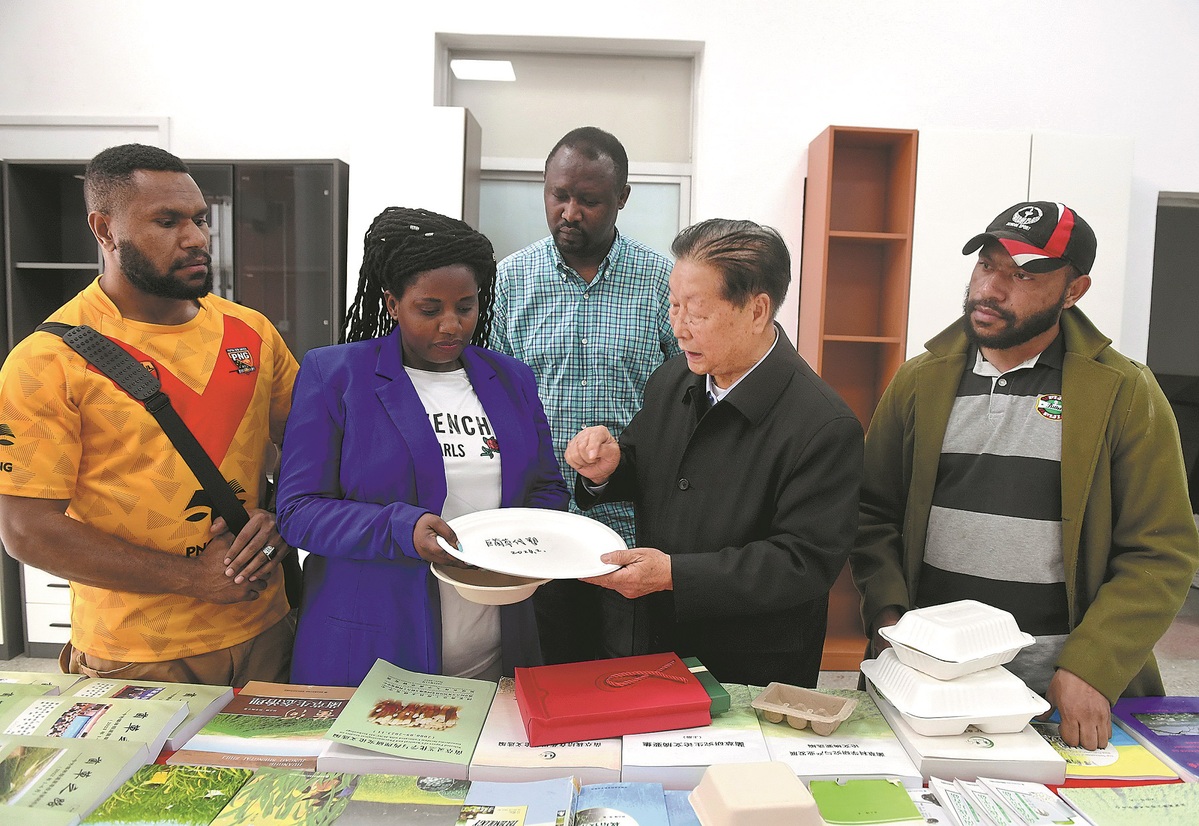Public 'nudged' away from single-use cutlery
Food delivery industry using innovative techniques to move in more environmentally friendly direction

Editor's note: As protection of the planet's flora, fauna and resources becomes increasingly important, China Daily is publishing a series of stories to illustrate the country's commitment to safeguarding the natural world.

At 10 pm on a Wednesday, Wu Xiu finally knocks off work and preorders his late dinner online to be delivered when he arrives at home later.
The 27-year-old programmer is one of many white-collar workers in Shanghai, and across many cities in China, that rely on online platforms for their daily meals.
Shortly after returning home, the doorbell rings heralding his hot meal for the evening — rice noodles.
Taking out his own set of stainless-steel chopsticks and a spoon from the drawer, Wu settles in with his iPad to eat while watching the costume detective drama, Not Detective Di Renjie.
Wu ensures that every time he orders he selects not to be given single-use cutlery. Despite this selection, disposable cutlery often comes along anyway to fill up his kitchen drawer.
China is the world's largest producer and consumer of single-use cutlery.
According to a report released by Gonyn.com, an industrial research institute, more than 120 billion sets of single-use cutlery were used and disposed of in China last year.
Despite growing environmental concerns and awareness about the impact and processing of single-use cutlery, its use in China has steadily risen over the past decade.
The problem exists on several fronts in the food delivery industry. Restaurants don't want to mistakenly not provide cutlery when it is required, fearing customer complaints. And customers often need to be encouraged to take action themselves.
As a result, food delivery platforms such as Eleme and Meituan have provided incentives for both customers and restaurants to reduce their use of single-use cutlery.
Eleme has teamed up with Alipay's popular Ant Forest Initiative to provide customers with a "green nudge", and prompt them to not select single-use cutlery on the platform in exchange for virtual "green energy" — points used in the Ant Forest Initiative that can contribute toward trees being planted in the real world.
Ant Forest won the 2019 Champions of the Earth award from the United Nations Environment Programme for its efforts in promoting greener lifestyles, by inspiring users to reduce carbon emissions in their daily lives and better protect the environment.
"I think my personal tableware is healthier, cleaner and more environmentally friendly anyway," said Wu, who actively participates in the Ant Forest Initiative.
He has planted 16 trees in areas of Gansu province, the Inner Mongolia autonomous region and the Ningxia Hui autonomous region, and ranks third in his friend circle.
The secret to Ant Forest's "green nudge" to prompt people into taking green steps has been its gamification — making the initiative addictive and competitive among users.
- China willing to advance just and equitable global anti-corruption system
- Chongqing hosts Silver Age fashion model competition
- Hengshan Mountain glistens with iconic winter rime scenery
- Ningbo hospital staff disciplined following pediatric surgery death
- Mainland warns Taiwan leader against provoking conflict
- Former senior official of Shenzhen under investigation





































